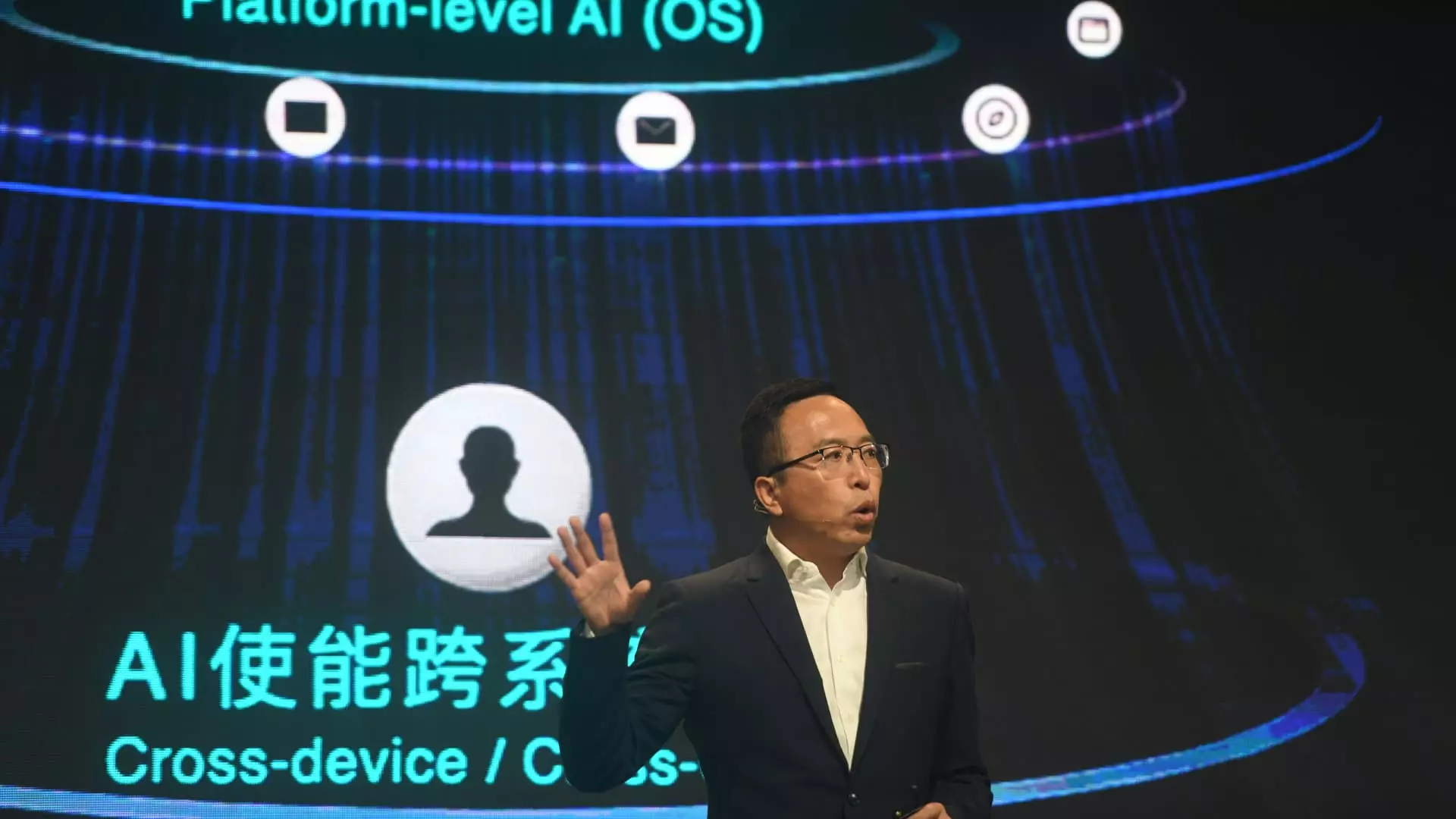In recent years, the smartphone landscape has witnessed a seismic shift, particularly in China, where local manufacturers are aggressively integrating artificial intelligence (AI) features into their devices. This development is not just a technological advancement; it poses a compelling challenge for Apple, which has historically dominated the smartphone market globally. As Chinese companies like Huawei, Honor, and Xiaomi ramp up their AI capabilities, Apple must navigate the complex dynamics of consumer expectations and competitive pressure in a market where it is losing ground.
AI Features & New Launches: A Game Changer for Chinese Brands
Following significant U.S. sanctions, Huawei responded emphatically by launching its HarmonyOS, an operating system that no longer relies on Google’s Android framework. This independence has enabled Huawei to incorporate AI technologies effectively, catering to local consumer preferences. For instance, the latest version of HarmonyOS facilitates functionalities such as text translation and photo editing, showcasing an evolution from its previous reliance on Google’s ecosystem. This shift illustrates Huawei’s commitment to developing homegrown technologies that resonate well with the Chinese consumer base.
Moreover, Honor’s recent unveiling of its Magic operating system reveals even more ambitious AI integrations. The company demonstrated features that allow for voice commands to translate almost imperceptibly into functions like ordering food or handling contact lists—all while minimizing user interaction. Such advancements exemplify a shift toward more intuitive technology, reflecting the growing consumer demand for seamless AI applications in everyday tasks. The upcoming Magic 7 smartphone promises to build on this momentum, with capabilities that leverage Qualcomm’s cutting-edge hardware and Honor’s collaborations with Chinese tech entities like Baidu.
As Apple prepares to unveil its AI-centric feature, known as Apple Intelligence, it faces a formidable challengers’ arena within the Chinese market. Importantly, the U.S. tech giant is opting to exclude users in mainland China and the European Union from this rollout, essentially limiting its reach in crucial markets. This decision shows a paradox; while Apple touts advances to sustain its relevance in AI, it simultaneously curtails accessibility, thus potentially alienating Chinese consumers who are increasingly captivated by local alternatives.
Recent research highlights that Apple has slipped out of the top five smartphone vendors in China—an alarming statistic that cannot be ignored. Though industry experts communicate a moderate assessment, suggesting that Apple won’t see a catastrophic decline, the trend underscores a gradual loss of market share that the company must address. Notably, only 17% of Apple’s revenue now stems from Greater China, down from 19% in the previous year. With other brands innovating rapidly, Apple’s market strategy requires reevaluation.
Market Trends: AI Innovations Drive Consumer Switch
Analysts, including Toby Zhu of Canalys, emphasize the significance of AI capabilities as pivotal drivers that may sway consumers to consider switching brands. As Honor, Huawei, and Xiaomi continue to enhance their AI offerings, these features could reflect a paradigm shift that draws users towards alternatives rather than maintaining loyalty to Apple’s ecosystem. Moreover, the introduction of foldable smartphones by these brands further diversifies their product lines, while Apple remains outside this segment altogether.
Despite Apple’s recent launch of the iPhone 16 Pro Max, the anticipated device has experienced price depreciation on second-hand markets, signaling a possible decline in consumer interest amidst a competitive backdrop. Following the release of Huawei’s Mate XT, market prices for both devices diverged significantly, highlighting consumer responsiveness to feature-rich, locally-manufactured products.
As Apple asserts its presence with upcoming product announcements, it must critically evaluate its competitive strategies concerning AI and product design. Engaging with local consumers on their terms rather than through unilateral approaches may foster stronger brand loyalty and stave off potential losses. Apple’s recent discussions with Chinese governmental entities regarding data security and cloud services could mark an essential step in rebuilding trust and understanding local consumer behavior, but proactive technological investments are equally critical.
The rapid integration of AI in smartphones by Chinese manufacturers signals a fundamental shift in the mobile technology landscape. Companies like Huawei and Honor are not only redefining user experiences but also challenging the entrenched status of industry giants like Apple. If Apple hopes to reclaim its position within the competitive Chinese market, it will need to enhance its offerings while actively engaging with a diverse and ever-evolving consumer base. Time will tell if Apple can adapt effectively to this pressing challenge or if it will continue to cede ground to these agile, innovative competitors.


Leave a Reply